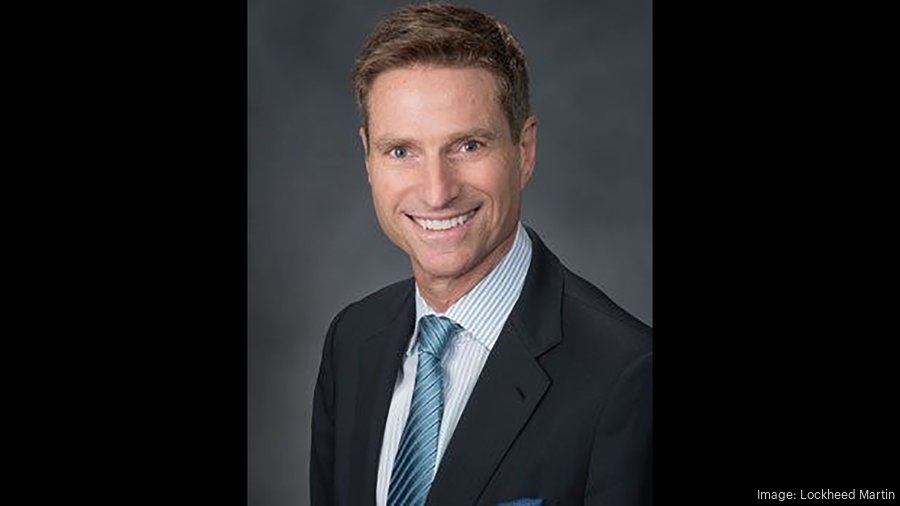Lockheed Martin Corp. (NYSE: LMT) made its CEO transition this week, closing the books on the tenure of Marillyn Hewson Monday and starting anew with James Taiclet.
The transition, which was announced in March just as the coronavirus pandemic was setting its teeth in the U.S., comes at a time of great uncertainty, but aerospace and defense industry analyst Loren Thompson of the Lexington Institute believes the Bethesda defense giant has chosen the right leader to navigate tumult.
“The more you look at James Taiclet’s resume, the clearer it becomes why he was the logical successor to Marillyn Hewson,” said Thompson, who also serves as a consultant to Lockheed. “Experientially, intellectually and temperamentally, he’s a real good fit for the job.”
Specifically, Thompson points to Taiclet’s tenure at Boston telecommunications and real estate company American Tower Corp. (NYSE: AMT). Becoming COO in September 2001, Taiclet helped the company navigate a valuation plunge in the wake of the 9/11 attacks, taking American Tower’s stock from a low of 0.80 a share on Oct. 16, 2002, to trading at $258.08 his last week as CEO.
Navigating that level of crisis and building American Tower during a 16-year term as CEO demonstrates why Taiclet is the right person to succeed the wildly successful Hewson. Taiclet will have plenty of challenges as he takes the helm, given the indeterminacy of the ongoing pandemic and the uncertainty of the election year.
“He sticks with his chain of command, he rewards people for being team players and he understands the importance of picking a strategy and seeing it through to execution,” Thompson said, noting that while Hewson was a favorite defense CEO of the President Donald Trump, Taiclet also possesses attributes that would be favorable to the White House.
“He is invariably courteous, he has a certain grace to the way he presents himself, he doesn’t try constantly for the spotlight and he’s ecumenical, in the sense that he’s not a partisan,” Thompson said. “Let’s say for the sake of argument that Trump got reelected. Taiclet is precisely the person that Trump likes, a highly successful executive who looks and acts the part.”
But challenges do remain. Regardless of which administration comes to power, defense spending is likely to fall, said Richard Aboulafia, vice president of analysis at Fairfax-based Teal Group Corp. That will leave Lockheed looking for new avenues of growth as it also tries to support commercial aviation suppliers affected by the pandemic.
“How do you manage yourself in a post-growth era,” he said. “Maybe there’s a way to combine the two, you look for acquisition opportunities to grow while simultaneously dealing with some of the companies that are supplying you. Maybe it’s a vertical solution.”
Aboulafia added that Taiclet and Lockheed will also have to keep an eye on competitors such as The Boeing Co. (NYSE: BA), Northrop Grumman Corp. (NYSE: NOC) and Raytheon Technologies Corp. (NYSE: RTX), each of whom have had varying exposures to coronavirus effects in the commercial markets.
“Northrop Grumman is uniquely unaffected by the pandemic. It’s, I think, the only company in the world that’s increased its dividend,” he said. Whereas Raytheon is perhaps "a bit less competitive," with Lockheed now, he added, having gone from being a mainly a defense prime contractor to doing a much higher percentage of commercial work after the merger of United Technologies Corp.
Most important to watch, Aboulafia said, will be the impact on Boeing, which is being hit hard by the massive decline in air traffic. “Probably, there will be a pretty significant impact that weakens Boeing’s competitiveness, that will be really interesting to watch.”
For the moment, Lockheed can still count on revenue from its largest defense program, the F-35, as well as continued demand for its missiles and vertical lift programs. But where the company will grow from there remains the challenge for Taiclet.



